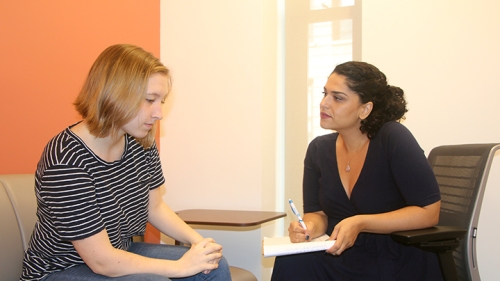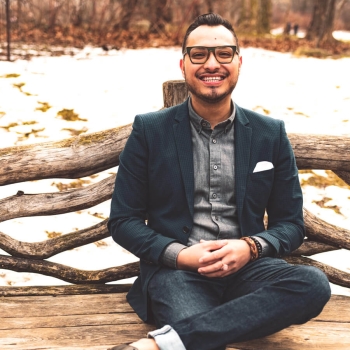

Dr. Ernesto Lira de la Rosa (he/him/his) is a Clinical Assistant Professor in the Department of Applied Psychology at NYU Steinhardt. He earned his Ph.D. in Counseling Psychology from the University of Wisconsin-Milwaukee, where he also completed his B.A. in Psychology with a Latino Studies Certificate.
Dr. Lira de la Rosa has extensive experience as a clinician, researcher, educator, and consultant in both the Midwest and the East Coast. His clinical expertise includes working with complex trauma, anxiety and mood disorders, stress and burnout, and substance use disorders. He has worked extensively with survivors of sexual abuse, LGBTQ+ individuals, people of color, and clients with intersecting identities. His therapeutic approach is rooted in humanistic and feminist frameworks, emphasizing cultural context, social justice, and advocacy.
He leads the CHISME Research Team -Clinicians Helping Inform Social Change through Mental Health Education - focused on advancing mental health education and fostering social change. Additionally, he serves as the Director of the LGBTQ+ Health, Education, and Social Services certificate program at NYU Steinhardt, which equips professionals to work effectively with LGBTQ+ communities in educational, healthcare, research, counseling, and community-based settings.
At NYU, Dr. Lira de la Rosa teaches APSY-GE 2651: Professional Orientation and Ethics Issues in Counseling for Mental Health and Wellness, APSY-GE 2661: Foundations of Counseling for Mental Health and Wellness, APSY-GE 2083: Foundations of LGBTQ+ Affirmative Counseling, APSY-GE 2185: Affirmative Mental Health Counseling for TGE Clients, and APSY-GE 2178: Social Justice & Advocacy for the LGBTQ+ Community.
Before joining NYU, Dr. Lira de la Rosa worked at Columbia University's Counseling and Psychological Services Department and served in NYC Health + Hospitals across inpatient and outpatient departments, as well as on mobile crisis teams. His professional and academic contributions continue to shape the field of mental health counseling, education, and advocacy.
Selected Publications
Alomá, A., Lira, E. N., & López, M. (2013). Commercial Tobacco Use and Smoking Cessation for American Indian Communities, Prevention and Health Promotion: Research, Social Action, Practice and Training, 6(2) 16-26.
Hunt, J., Alomá, A., Lira, E. N., Wohlers, H., López, M., & Sapp, M. (2013). Attitudes Towards Patients with a Mental Illness: A Comparative Analysis of Stigma in Counseling Students and Nursing Home Care Providers. The Wisconsin Counseling Journal, 27, 37-51.

